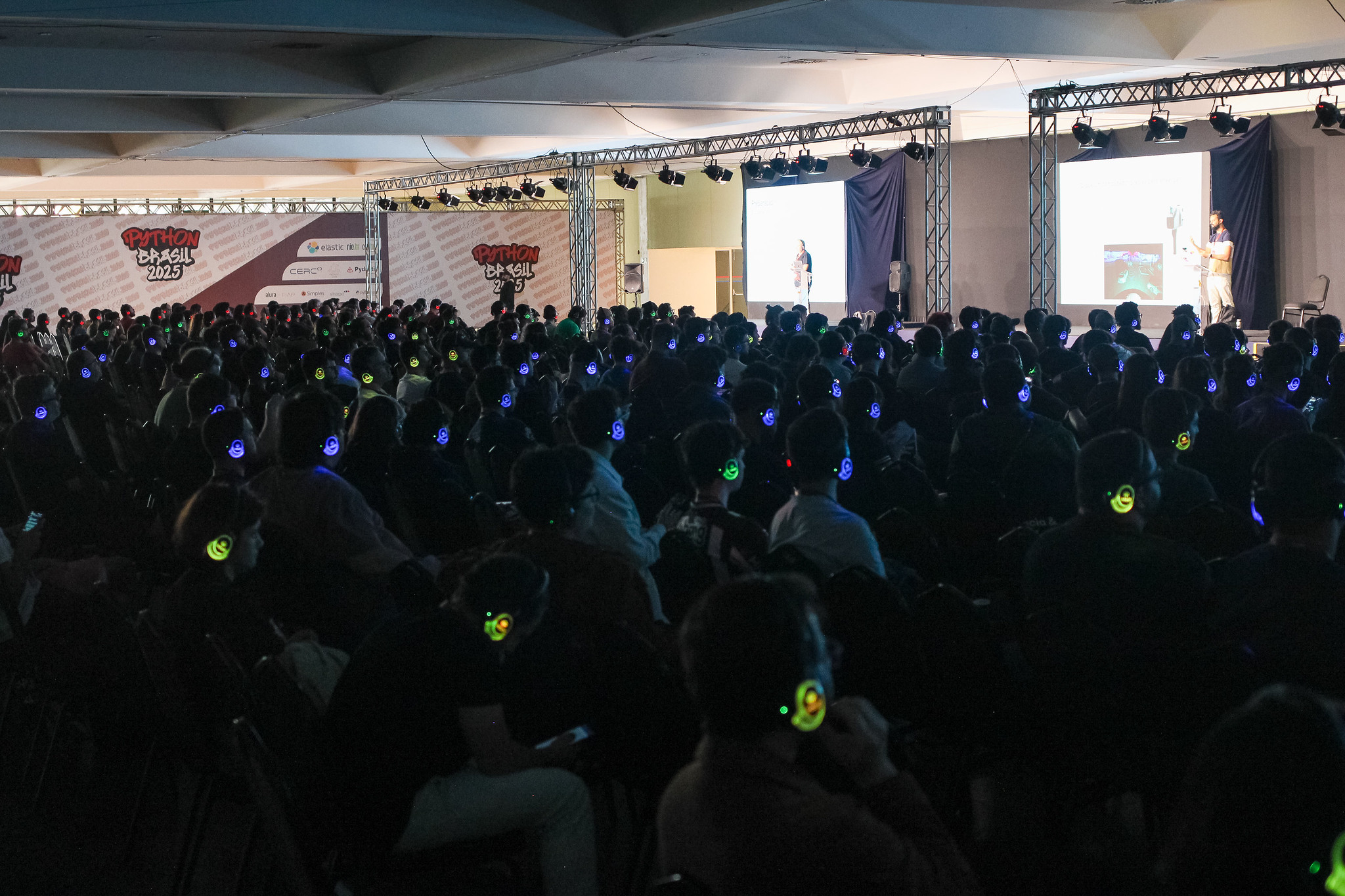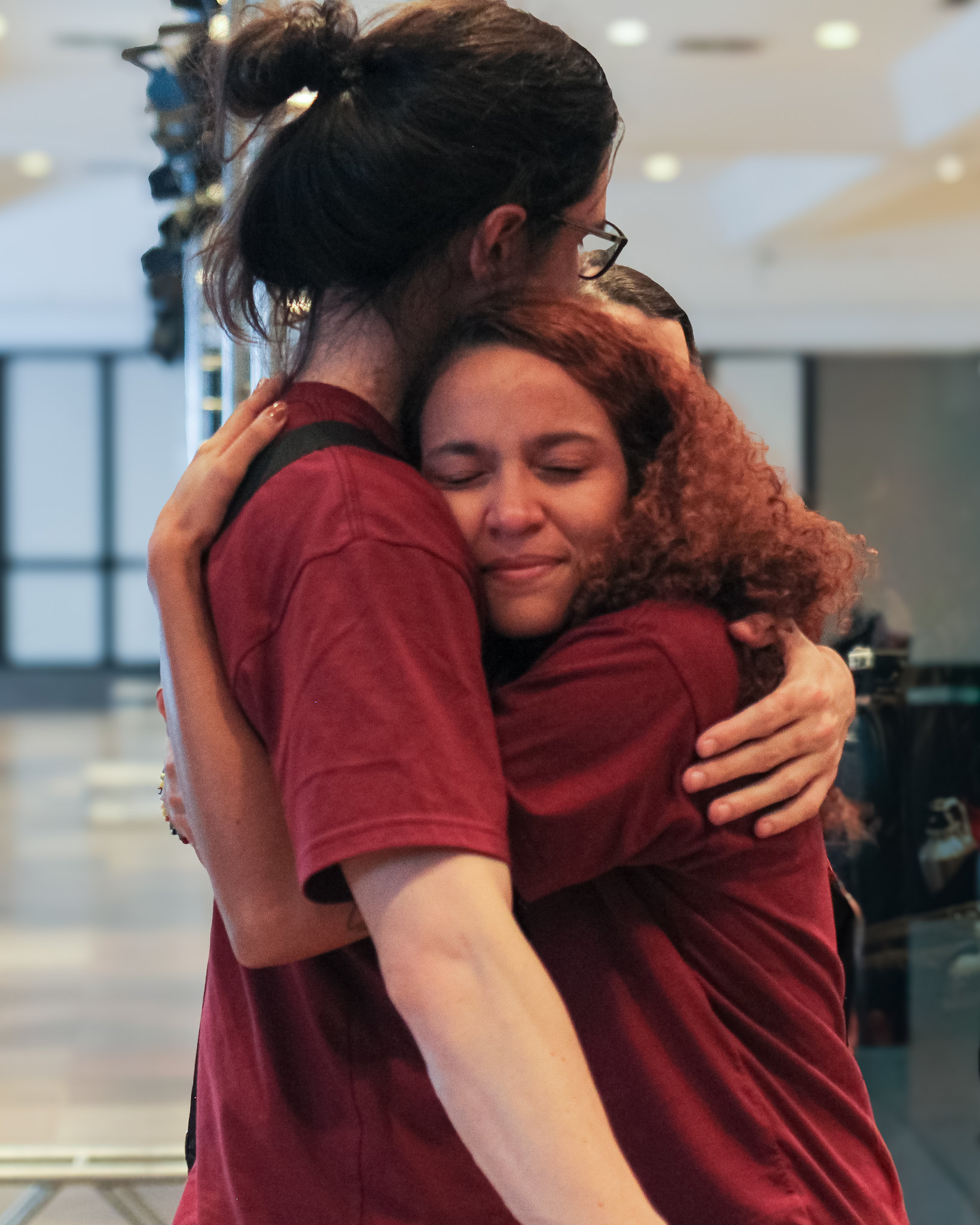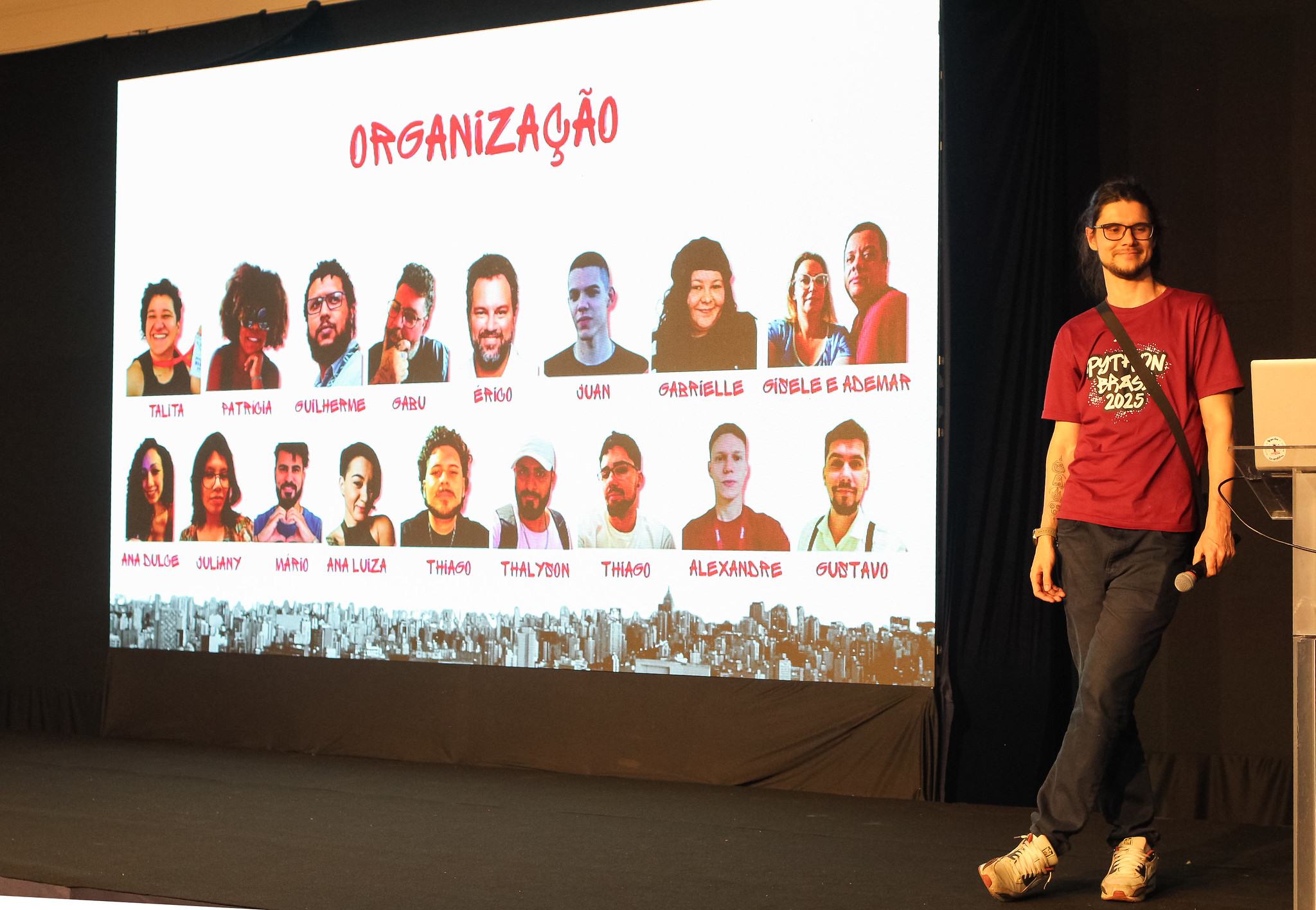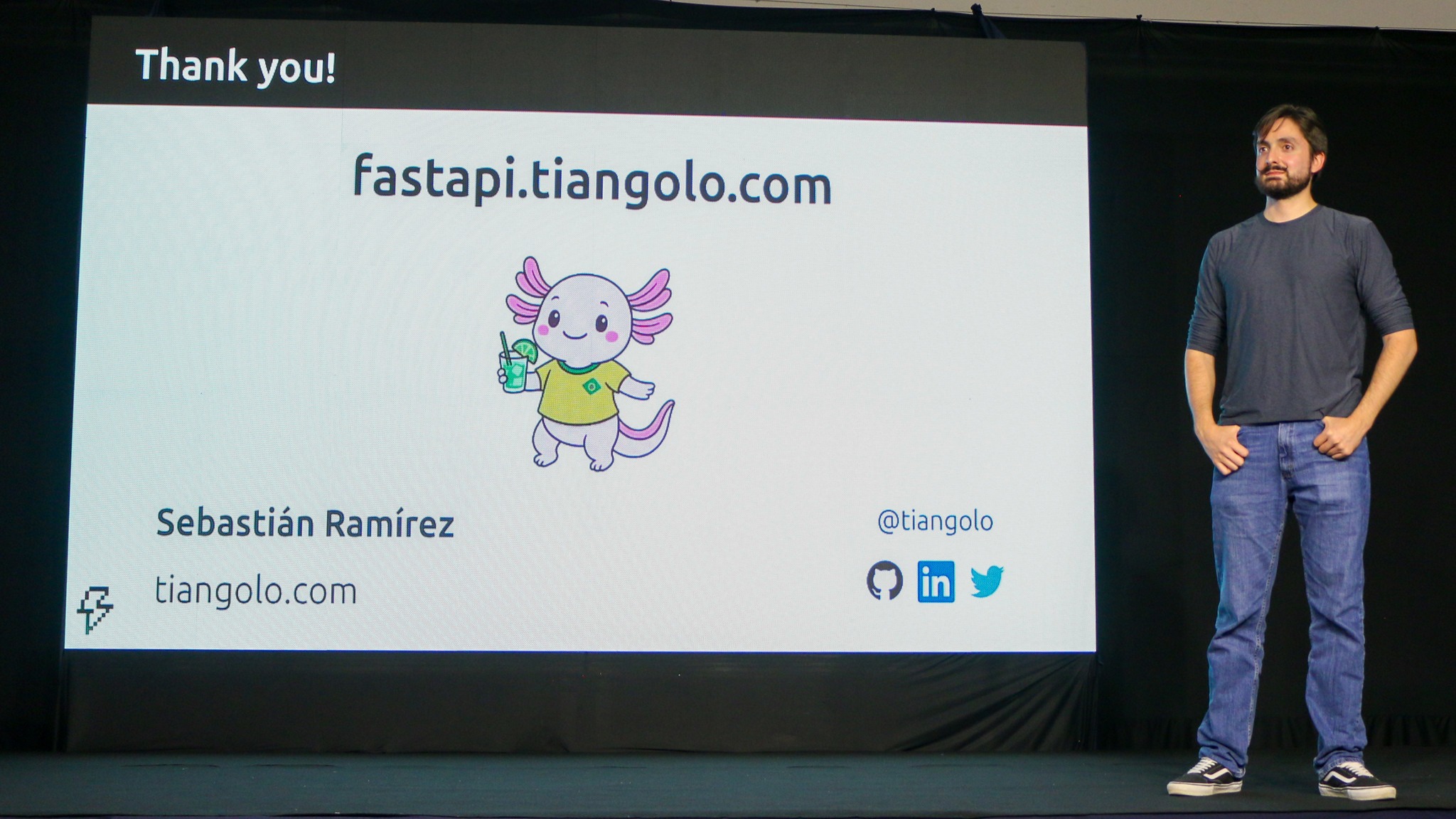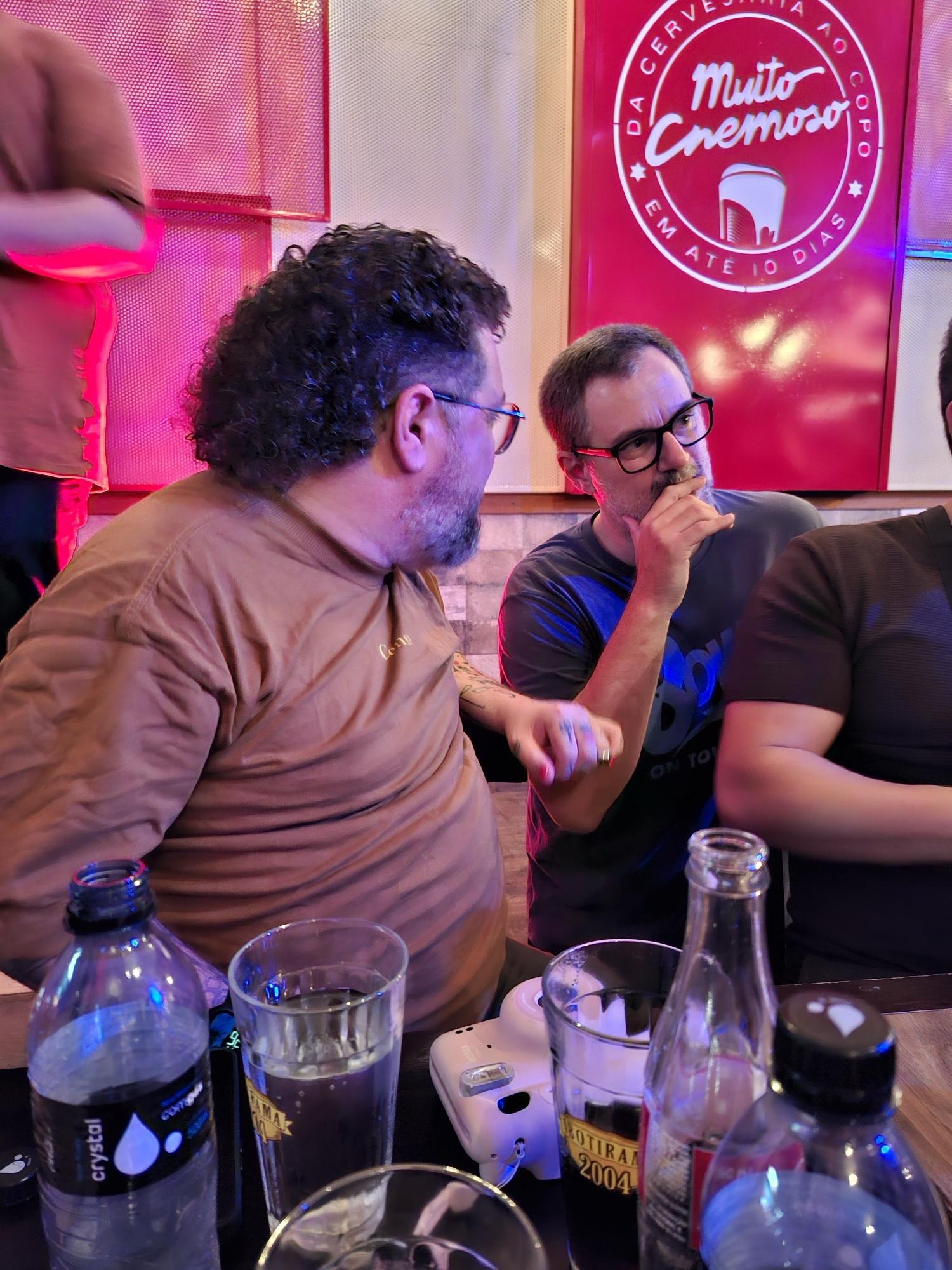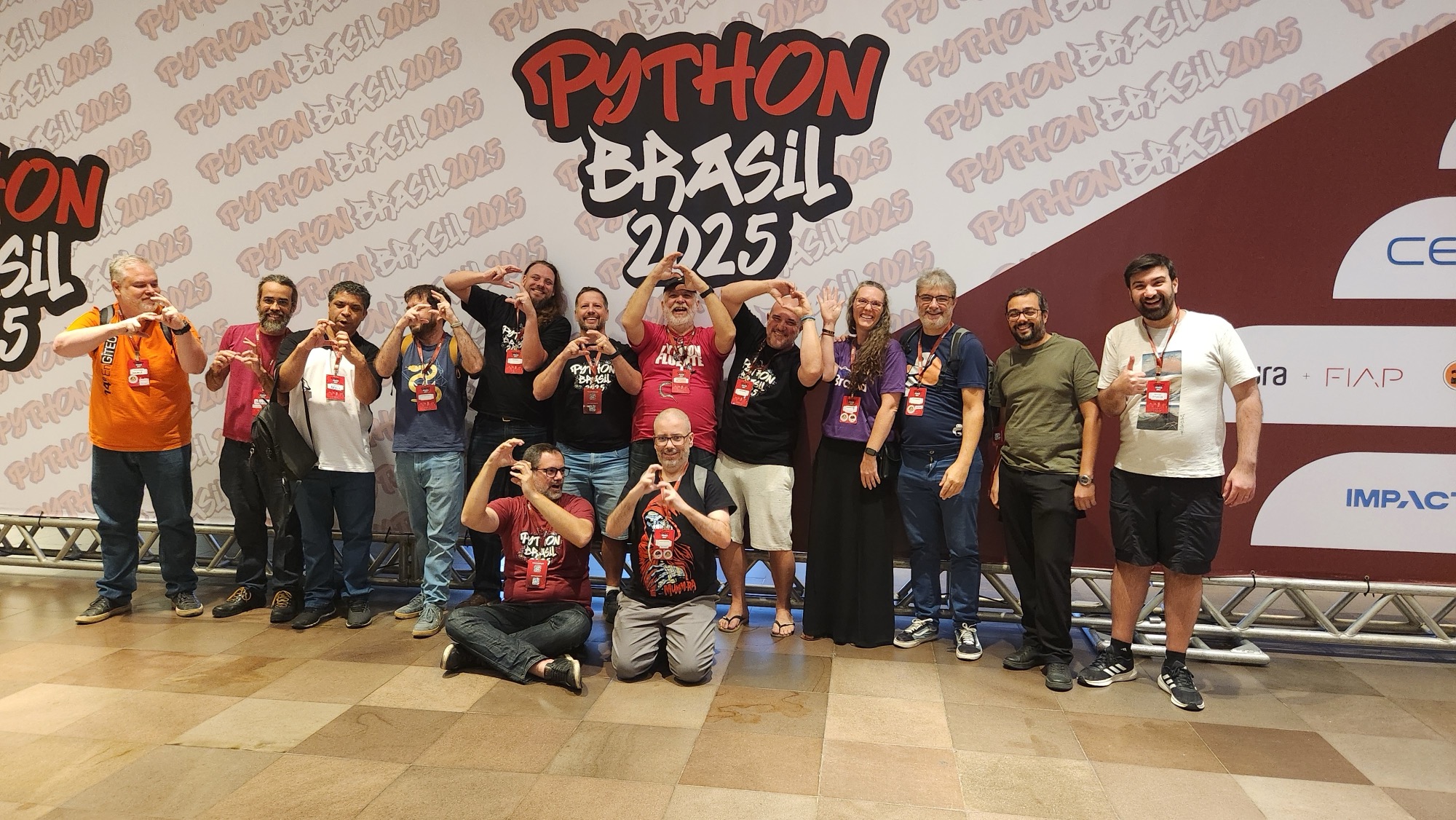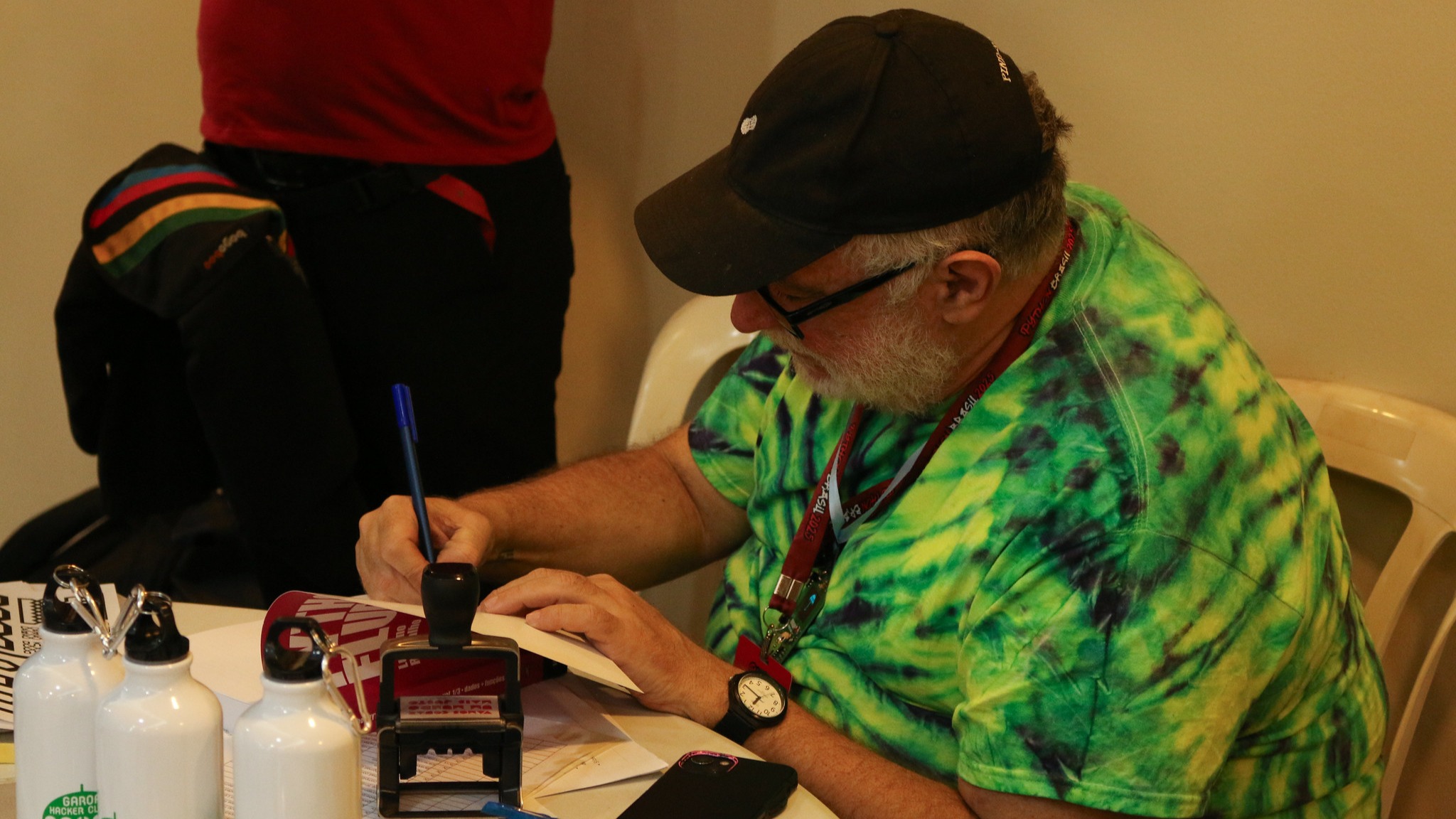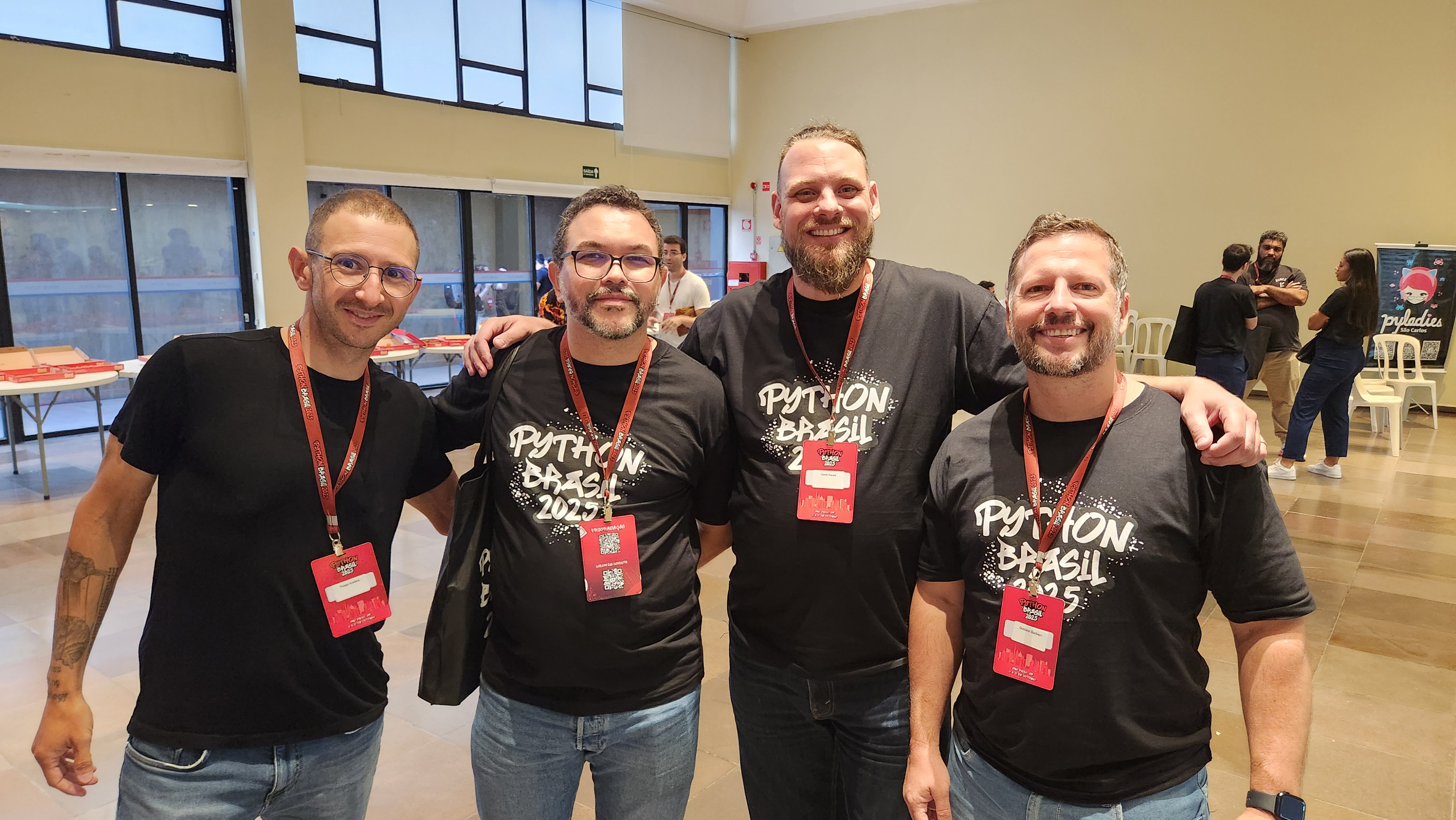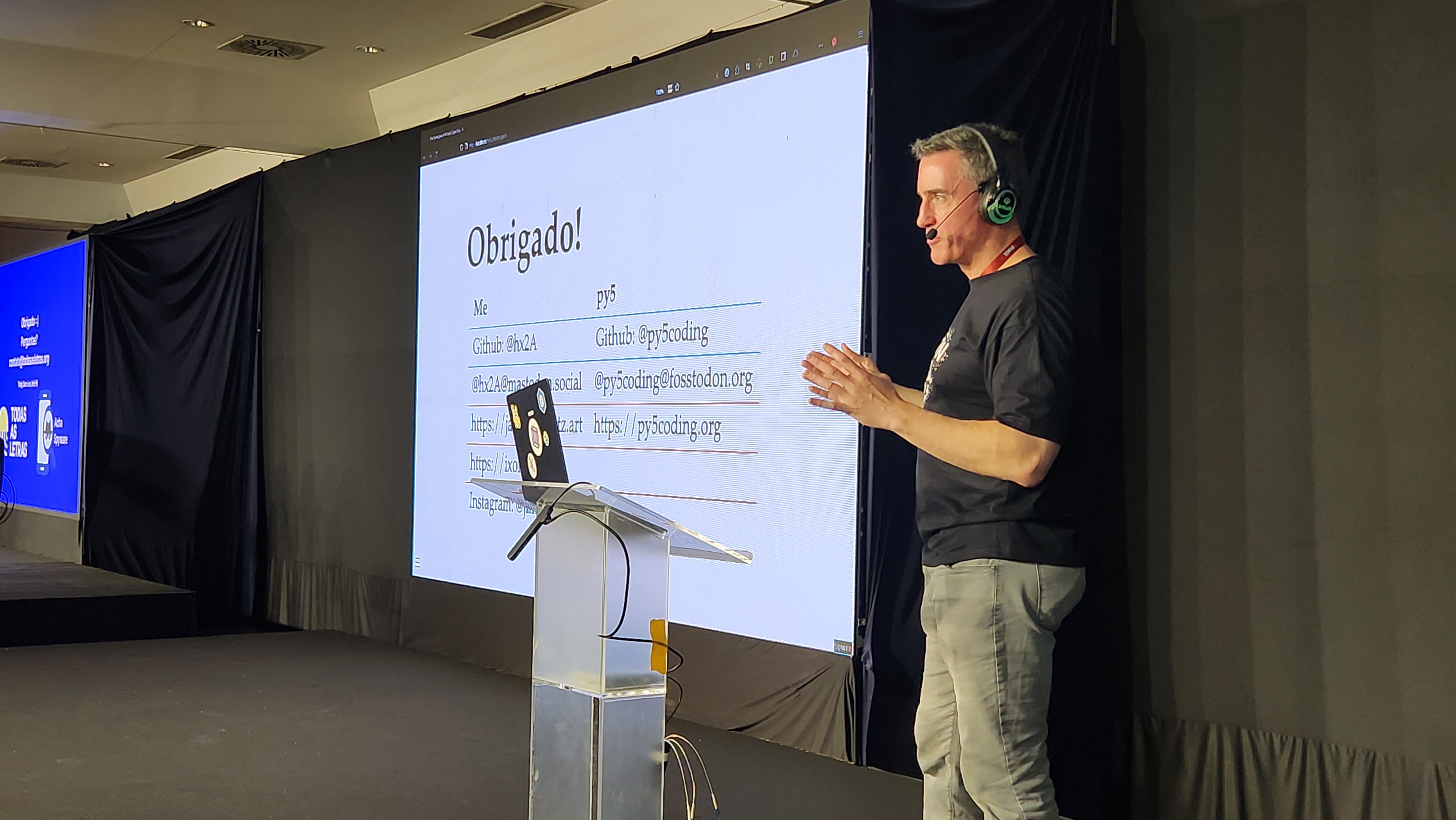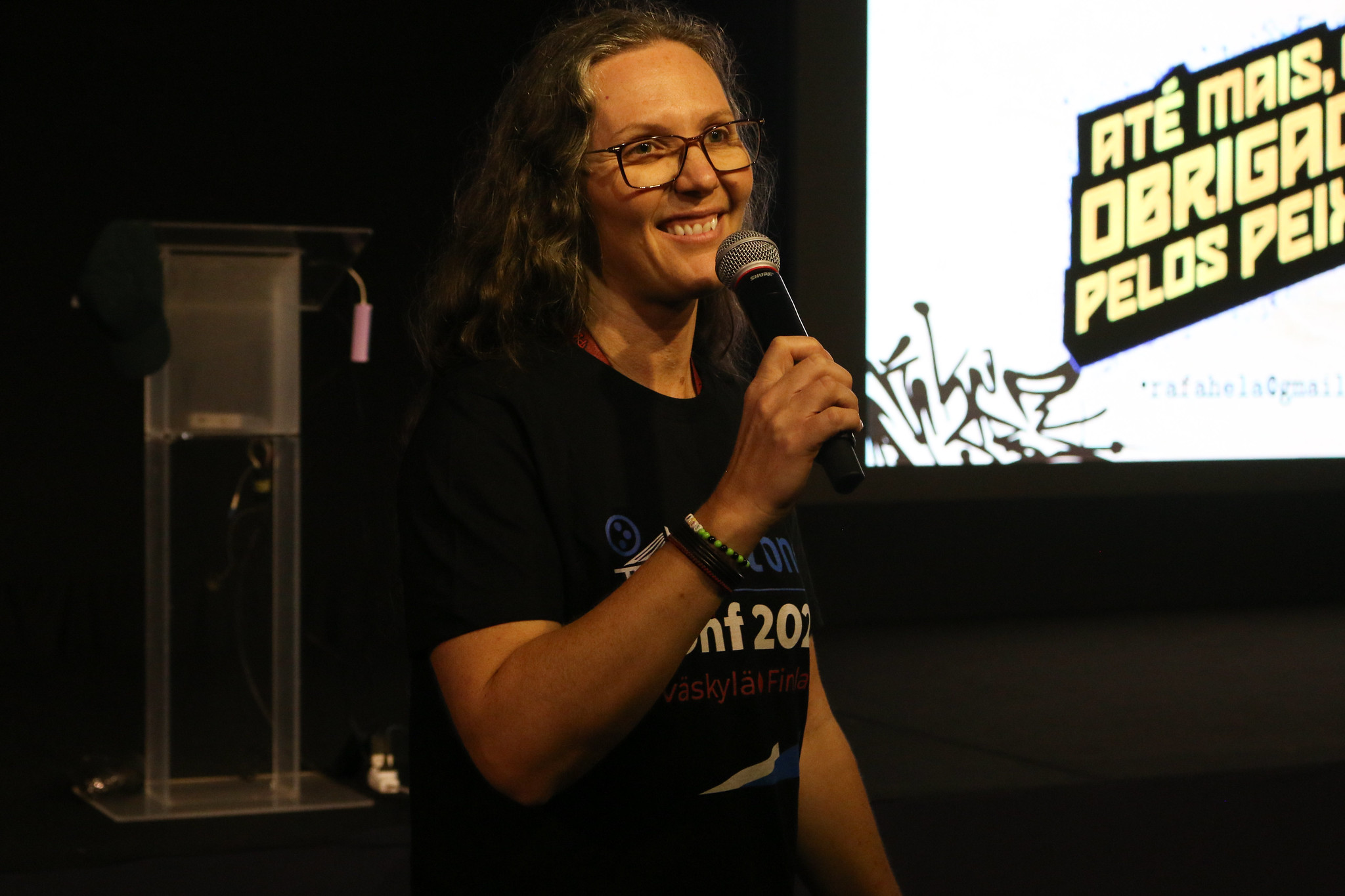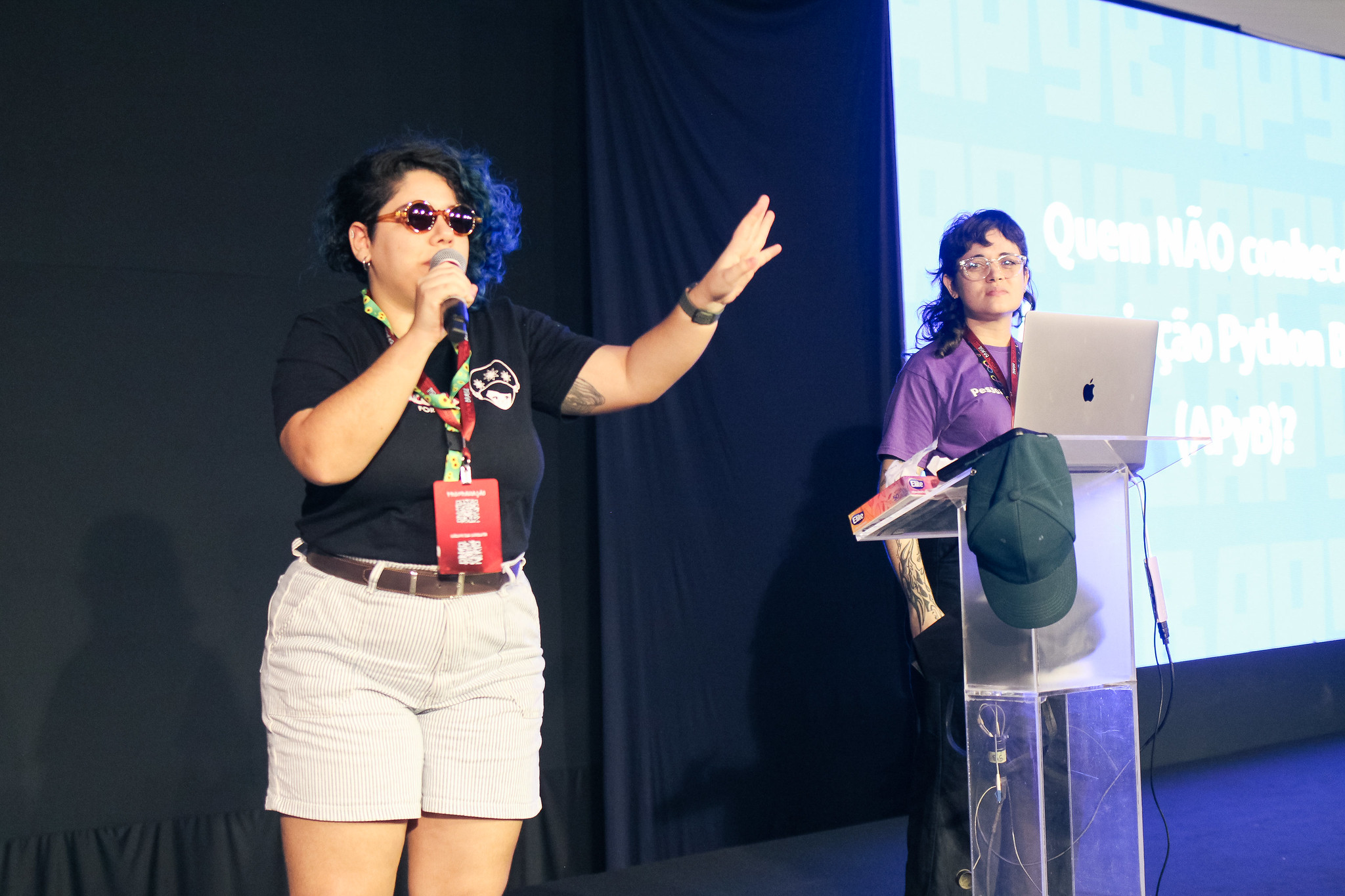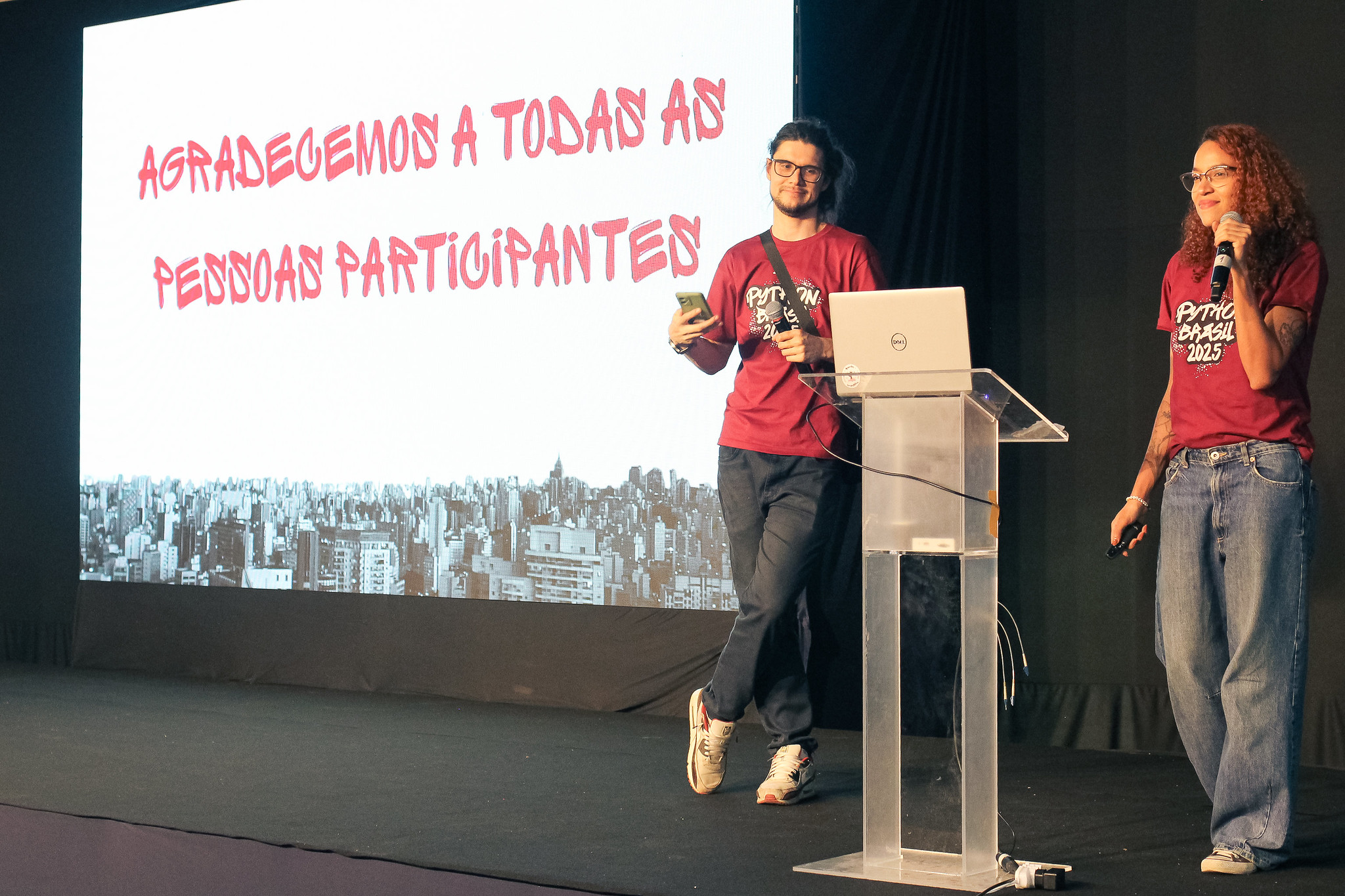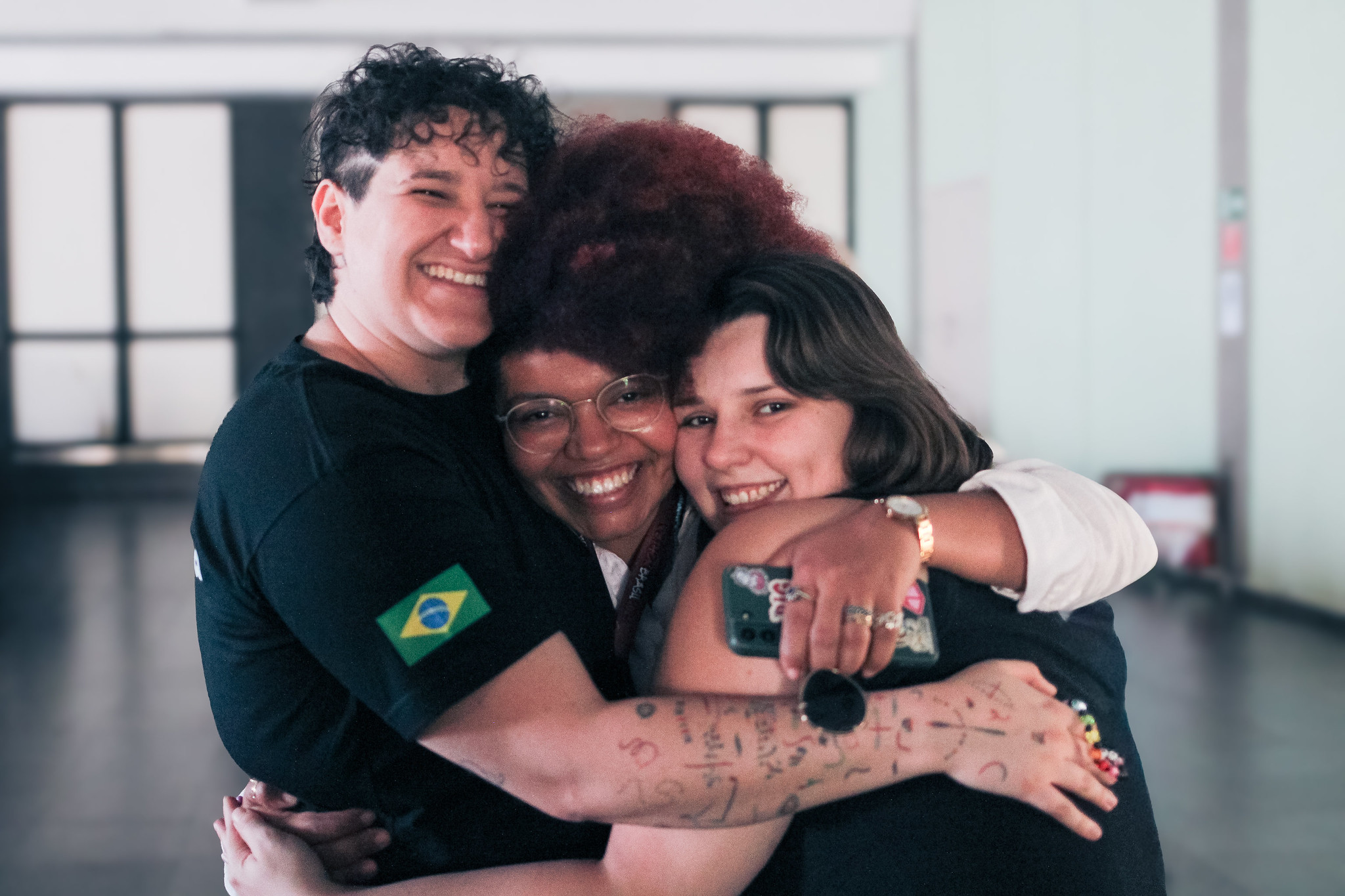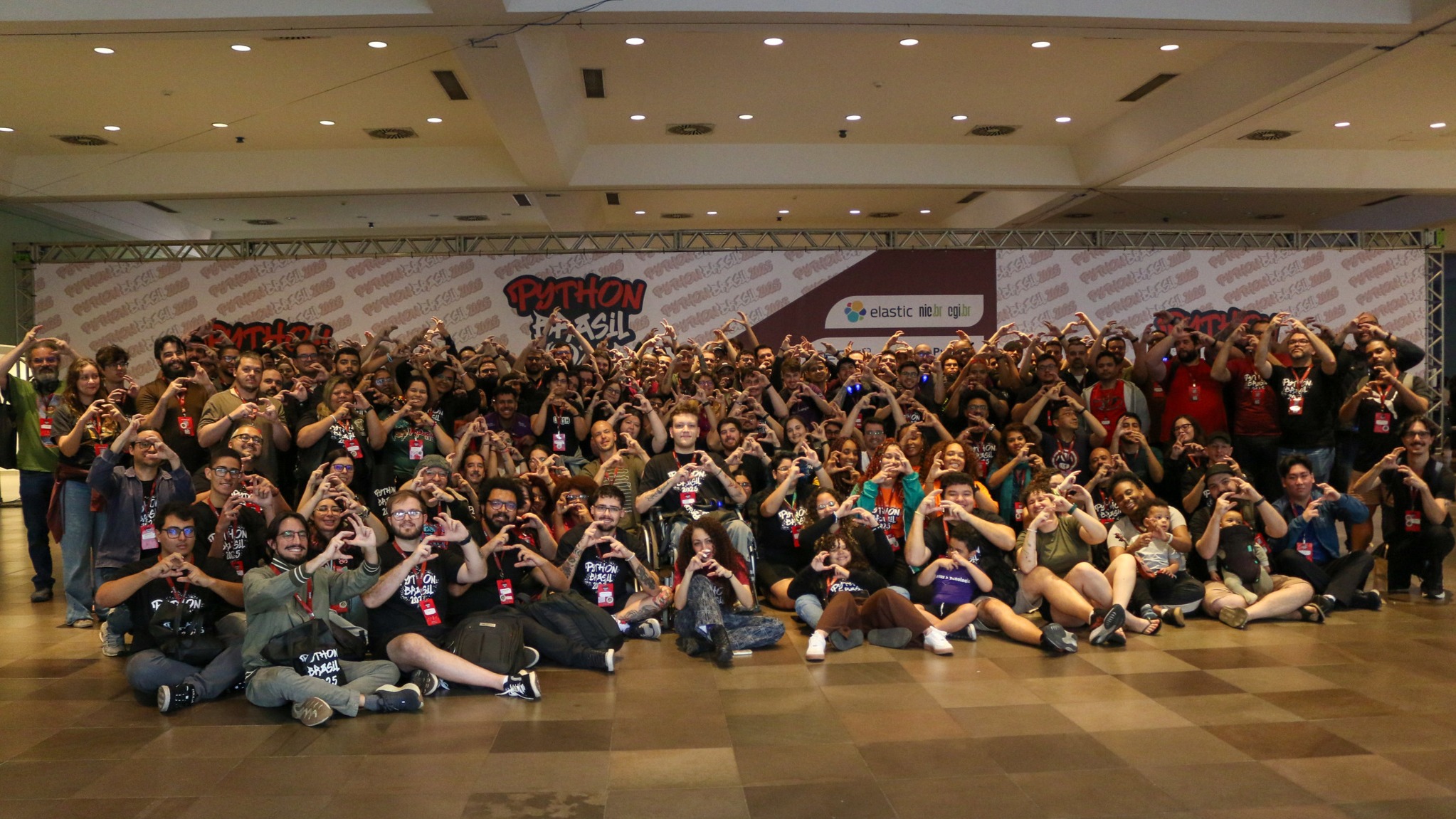
A Community That Cares: PythonBrasil 2025 in São Paulo
It has been a week since the end of PythonBrasil 2025, the main gathering of the Brazilian Python community. A full week of tutorials, talks, networking, and community building — of meeting old friends and making new ones.
A Bit of History
The Brazilian Python community dates back to the late 1990s. In a country as large as Brazil, where travel costs are prohibitive, it began as a mostly online community organized around mailing lists and IRC channels.
With the creation of FISL (Fórum Internacional de Software Livre), this virtual community started to meet in person once a year, in Porto Alegre. Fast-forward to 2005, when Rodrigo Senra decided to organize the first Python conference in Brazil — PyConDay Brasil at Unicamp. The event’s turnout was so great that what was planned as one day became two. That success started a tradition: every year, the Brazilian Python community would gather in one city to share knowledge and celebrate together.
The name evolved from PyConDay to PyCon Brasil (since it clearly wasn’t just one day anymore), and later to PythonBrasil. While most national Python conferences around the world use the PyCon prefix, this shift gave us a unique identity — and, looking back, it was a very wise choice.
Early on, the community decided that, even though it would be easier to keep the conference in the same city, PythonBrasil should travel — each edition hosted by a local group that had built a thriving Python community. We’ve since gathered in Brasília, Joinville (SC), Rio de Janeiro (RJ), Caxias do Sul (RS), Curitiba (PR), São Paulo (SP), Porto de Galinhas (PE), São José dos Campos (SP), Florianópolis (SC), Belo Horizonte (MG), Natal (RN), Ribeirão Preto (SP), Manaus (AM), and again in several of these cities. And during the pandemic, we held two fully online editions — proof of our adaptability and perseverance.
Back to São Paulo
São Paulo has always been one of the largest and most active clusters of the Brazilian Python community. It’s where Hyperlogica and Simples Consultoria — two of the earliest companies supporting Python — were based, where the Associação Python Brasil was founded, and where we last held a PythonBrasil back in 2011.
If you dig around, you’ll find out that I was the “Big Kahuna” that year. That edition marked a turning point: it was the first time the event wasn’t hosted by a university or a government institution. We chose to go to a convention center, form a dedicated organizing team, approach sponsors directly, and strengthen ties with our friends from the Argentine Python community — a collaboration that helped both PyCon Argentina and PythonBrasil grow.
So yes, I’m a bit emotional seeing São Paulo hosting a PythonBrasil again, 14 years later.
The Team Behind It
Back in 2023, Ana Dulce approached me to help her “sell” the idea of a PythonBrasil in São Paulo. Rationally, I should have politely declined — I was moving to Brasília, my (now) wife and I were adopting our daughter, and life was about to get wonderfully complicated. But Ana can be very convincing, and I’ve never been particularly rational when it comes to the Brazilian Python community.
That presentation to the Association was tough. Many people were unsure — not entirely comfortable that neither Ana nor I would be the public “faces” of the conference. Others worried about the local community, which at the time was hibernating. But unlike the Cylons, we had a plan. A good one.
Enter Renan Santos and Izabela Cardoso — two of the kindest, most committed people I’ve ever worked with. Ana trusted them, and after one meeting I understood why. They would be the ones turning the dream into reality. Within months, they were organizing meetups, reactivating PyLadies and GruPy-SP, and rebuilding momentum. The first goal — bringing the community back — was achieved.
Having two years to organize a conference can be a blessing or a curse. It gives you time, but life happens — as it did with me, and for the past twelve months, I was mostly absent. But Renan, Iza, and Ana were there week after week: planning, negotiating with suppliers, handling the countless bureaucratic hurdles (at least 120 of them!), and keeping the spirit alive.
Of course, there was a fantastic team of volunteers behind them, but these three were the core — the heart and soul of the conference. If you meet them, raise your glass and make a toast. They deserve it.
Great Content
The conference opened with three days of tutorials — and somehow, I ended up with the very first slot, right after a sleepless week at Plone Conference and a rather stressful trip home. Despite that, it was an absolute joy. Hundreds attended, and the quality of tutorials was astounding. As always, I wished I could clone myself to attend more.
The following three days were packed with talks, keynotes, and open spaces — and yes, I got the first slot again! We had over 750 attendees, the largest post-pandemic crowd and the third biggest in PythonBrasil’s history. Four stages ran simultaneously, hosting “silent talks” that encouraged curiosity and exploration. My session on Python Typing in Plone was well received, and even a few minor glitches with the LED panels couldn’t dampen the energy.
More than once I found myself torn between four excellent talks — all at the same time. At one point, three close friends were presenting simultaneously while I was hosting the fourth. In hindsight, it was the right choice — but a true test of self-control (and of my ADHD meds).
We had amazing keynote speakers. I loved every one of them, but I have to admit I was a bit starstruck meeting Sebastián Ramírez (tiangolo), the creator of FastAPI and Typer. Having a Colombian as a keynote speaker at PythonBrasil the same year a Brazilian was keynote at PyCon Colombia felt beautifully full-circle.
The Community
But let’s be honest: PythonBrasil is never just about the talks. Many of them have been presented elsewhere, some are even online. PythonBrasil is about people — about human connection. It has always been that way.
It’s about the corridor conversations, spontaneous introductions, random questions, and those long, laughter-filled coffee breaks.
And when the day ends, the magic continues. We go out for dinner, beers, and the beloved PyBar evenings — and of course, karaoke. Seeing sponsors, speakers, and even a certain Colombian Python celebrity singing with us? Unforgettable. (And having friends like Gabu recording it all and sharing later — priceless.)
Long-Time Friends
This year felt truly special. People who were instrumental in building the Brazilian community returned — some for the first time in over a decade.
- Rodrigo Senra, our first Big Kahuna, flew in from his comfortable life in the U.S. to give an amazing talk about health tech
- Osvaldo Santana with an inspiring soft-skills talk
- Gustavo Barbieri discussing GraphQL
- João Bueno diving into performance
- Luciano Ramalho, with another brilliant talk on Iterators (and signing books, of course)
- Turicas, presenting a great package for interacting with financial market data
- And longtime friends like Diego Dukão, Flávio Amiero, Régis do Python, Zeca Figueiredo, Alexandre Villares, Fernando Massanori, Thiago Avelino
- Plus many who hadn’t been seen in years: Luis Irber, Tomás Correa, David Kwast, João Henrique Gouveia, Daniel Vainsencher
Also this year gave the opportunity to finally meet people I follow and admire online, like Bruna Soares, Jim Schmitz and Téo Calvo.
The Best Was Saved for Last
There’s one name I haven’t mentioned yet: Rafahela Bazzanella. She delivered the final keynote, and I had the honor of being her host — introducing her, keeping time, and passing the mic for questions.
Rafahela, in my view, is a quiet yet powerful force for good in the Brazilian Python community. She’s been there since the very beginning — always taking photos, getting things done, never seeking the spotlight.
She was crucial in founding the Associação Python Brasil, led the Portal Modelo project (used by over 1,200 legislative chambers across Brazil), and cared deeply about translating Plone, Zope, and documentation. From that small founding group, only she and Luciano Ramalho remain active today.
Her keynote was a history lesson — and a deeply emotional one. She graciously mentioned forgotten names, gave praise where it was due, and shared a story of resilience and renewal. It was a powerful reminder that, when things seem to fall apart, our community family will always be there to hold us up.
By the end, many of us “old-timers” were crying from nostalgia — and many of the newer generation cried seeing how much heart and persistence it took to build this thriving community.
The Dorneles Treméa / Jean Ferri Award
Our community lost two of its earliest leaders — Dorneles Treméa and Jean Ferri — far too soon. To honor their memory, we created an award bearing their names, given to those who keep the community spirit alive.
This year’s honorees were:
- Thais Vianna — organizer of last year’s PythonBrasil and a key leader in the Rio de Janeiro community
- Adorilson Bezerra — member of GruPy-RN and a documentation hero, instrumental in translating the official Python documentation to Brazilian Portuguese
- And, of course, Rafahela Bazzanella — (did I mention Jean Ferri was her late husband?)
More tears. More gratitude. And recognition for someone who truly embodies the soul of this community.
Special Thanks
There are countless people who made this conference possible and deserve recognition, but I want to highlight two who were always there whenever I reached out: Jules Barros and Fernanda Souza.
Their commitment, generosity, and encouragement were constant reminders that every hour we’ve invested in this community has paid back a hundredfold.
And the Countdown Begins
Now the countdown starts again — until October 14th, 2026, when we’ll meet in Florianópolis, SC. Tickets went on sale less than three hours ago and already sold out their first 100 spots. (Of course, I’ve secured mine!)
The next edition will be organized by Python Floripa, led by Talita Rossari — one of the most inspiring and enthusiastic leaders our “Python family” has ever had -- with the co-leadership of Belisa Arnhold -- also one of the most inspiring people this new generation of Brazilian Pythonistas produced.
And I can’t wait to see how she’ll inspire, and surprise, us once more.
